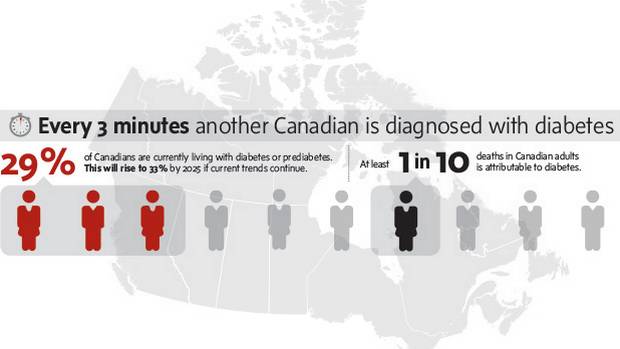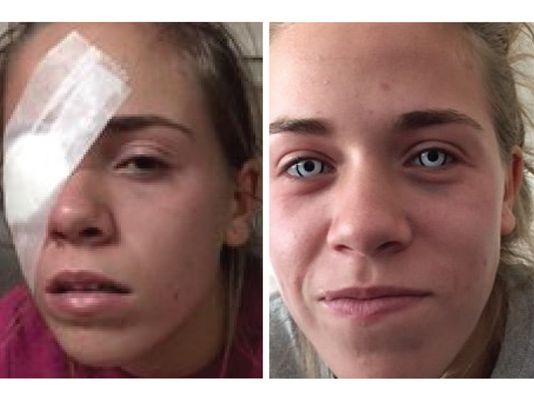How Diabetes Can Affect Your Eyes
An estimated 3.4 million Canadians are living with diabetes, and the number has doubled in the last 12 years. Diabetes causes increasing and fluctuating levels of sugar in your blood, which causes damages to your organs. People with diabetes are 3x more likely to be hospitalized with heart disease, and 12x more likely to be hospitalized with kidney disease, and they account for 70% of non-traumatic lower limb amputations. Diabetes can also affect your eyes, and potentially cause serious vision loss.
Diabetic Retinopathy is the leading cause of blindness in Canadians under the age of 65. It occurs when there is weakening or swelling of the tiny blood vessels in the eye, resulting in fluid leakage and bleeding. If left untreated, it can lead to blindness.
Here’s a photo of a healthy retina (left) and a retina with diabetic retinopathy (right)

Did you know diabetes can be first detected through an eye exam? There may be no symptoms in the early stages, so a person like this might still be able to see 20/20 on the eye chart and not notice any visual changes. If you wait until your vision becomes blurry, the retinopathy may have already worsened, and once damage has occurred, the effects can be permanent. That’s why early detection and treatment is critical, so that you can take action to prevent/delay complications and potential vision loss. Risk factors of developing diabetic retinopathy include smoking, high blood pressure, drinking alcohol and pregnancy.
If you have already been diagnosed with diabetes, come see Dr. Lee for a comprehensive dilated eye exam at least once per year (or more frequently if recommended) to minimize your risk of developing serious retinopathy.
November is Diabetes Awareness Month and we encourage everyone – whether you have the disease or not – to visit Dr. Lee for a comprehensive eye exam. Regular visits are essential to monitor changes in your eyes and either detect diabetes or prevent further complications in your vision as well as your overall health.
If you haven’t been diagnosed, KNOW YOUR RISK of developing Type 2 Diabetes.
If you are over the age of 40, the Canadian Diabetes Association (CDA) recommends that you get tested for type 2 diabetes every three years, and more frequently if you have any of these risk factors:
- A parent or sibling with diabetes
- Are a member of an ethnic group at high risk for type 2 diabetes (African, Hispanic, Asian, South Asian and Aboriginal)
- Are overweight
- Have high blood pressure or high cholesterol
- Have been diagnosed with prediabetes
- Have polycystic ovary syndrome
Visit take2minutes.ca to take the test and know your risk so that you can take action to stay healthy!
Learn more about how to prevent type 2 diabetes, and diabetes-related complications at the The Globe and Mail’s Diabetes Awareness Month Feature
Resources:
1. More information from the Canadian Diabetes Association
2. National Eye Institute Facts About Diabetic Eye Disease




